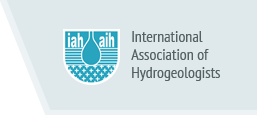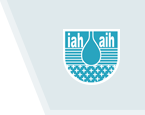Mentoring
An improved understanding of groundwater issues supports its better management. Everyone at the start of their professional careers need to be supported and guided in taking their first steps in the hydrogeology profession. Find out more.
A Day in the Life of a Hydrogeologist
It is very important to build a bridge and create connections between young (ECHN members) and senior/experienced hydrogeologists. During the 43rd IAH congress in Montpellier, France, the ECHN invited 4 senior hydrogeologists to share their experience, what made them become hydrogeologists, their struggles and successes and their advices for early career hydrogeologists to succeed in their careers.
Here are some of their tips;
HOW TO SUCCEED IN A HYDROGEOLOGICAL CAREER
- If it is not your passion it should not be your career.
- Be willing to follow opportunities as they arise…you may not think that is the direction you want to go but suddenly you ‘fall’ into a career.
- Be pragmatic and stay open to opportunities.
- Put on your boots and go on fieldwork as much as you can.
- Build your LinkedIn network so that people know who you are.
- Contact people.
- You will get a NO or rejection at some point! Everyone does. Either if it is a funding proposal, winning a tender for a project as a consultant, or submitting an article for publication etc. At some point it’s quite NORMAL. Just don’t give up in the first impasse.
WHAT EMPLOYERS LOOK FOR:
- Independent and innovative people who can solve problems in the field.
- Ability to solve problems.
- Outside activities people tend to leave off their CV’s. That little bit of extra information show some leadership skills or personality.
- Emotional intelligence also matters. One needs to have the attitude of a professional who gets things done with a good attitude.
HOW TO GAIN EXPERIENCE:
- Look for NGOs that lack hydrogeologists in their teams. Despite the fact that this are normally low paid positions it will help you to gain a much valued experience and on a wide range of topics.
- Look for fieldwork courses.
- Contact your seniors, professors. Ask to go along with them in the field. It is a very good opportunity for networking as well as learning from others.
- Gain some experience beyond academia. International exposure is easily accessible through internships and volunteering.
- Sometimes the best courses are those given by professionals out of the academic world.
- Whenever you are outside in the field even if in a pic-nic or hiking, train yourself to always observe the topography, geology etc. Scan the view and mentally register your observations.
The ECHN would like to thank Shammy Pury, Wendy Tims, Joanne Thompson and Callist Tindimugaya for having accept our invitation to participate in the ECHN session in Montpellier.
We also thank Gaia Lassaube for transcripting the talk during the session.






